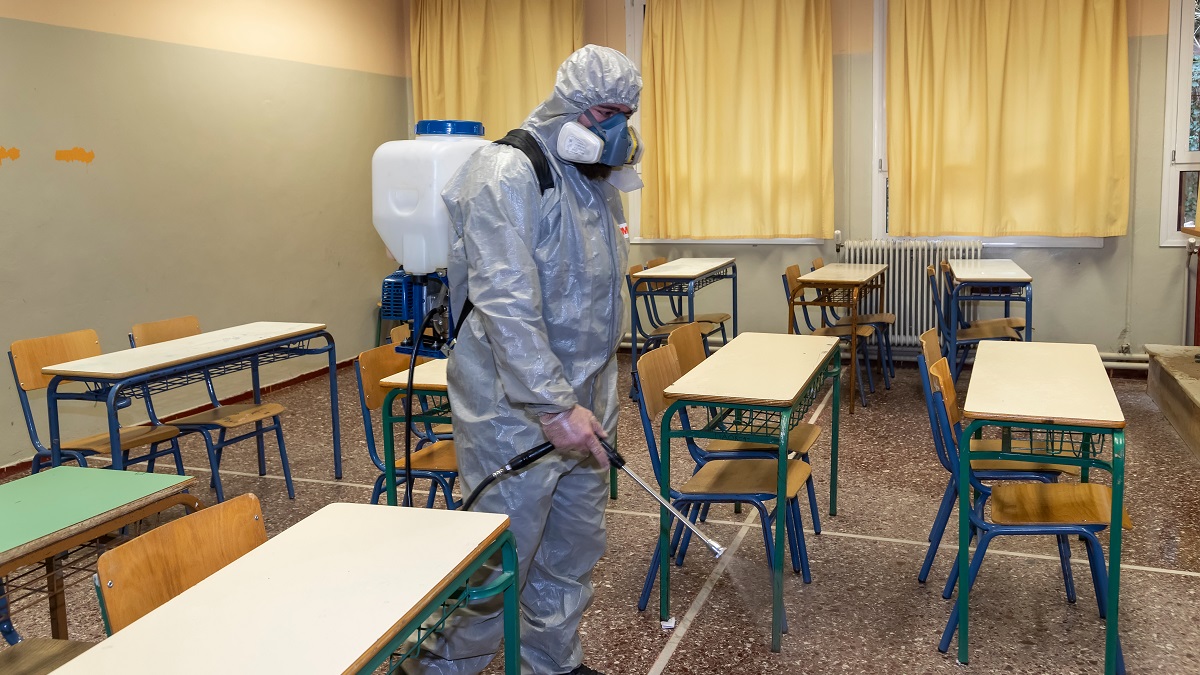The Federal Ministry of Education has given school owners up to 29th of July, 2020 to meet specific guidelines towards the reopening of schools.
The statement signed by the Director of Information in the Ministry, Ben Bem Goong quoted the Minister of State for Education, Chukwuemeka Nwajiuba as saying that the ministry, having consulted widely, has in collaboration with Ministry of Health, Nigerian Centre for Disease Control and Education in Emergencies Working Group, developed and circulated guidelines for the reopening of schools.
- ‘Reopening schools could save educational system’
- COVID-19: FG should adopt staggered reopening of schools
According to the Minister, school owners are to prepare and comply with the guidelines.
Nwajuiba said schools are to undertake self-assessment and send feedback to state ministries of education, not later than 29th of July 2020.
“Thereafter, consultations with relevant stakeholders will be held to review the situation and decide on a specific date for reopening or otherwise,” the statement said.
According to the statement, the ministry has also met with stakeholders including West African Examination Council (WAEC) on Monday and agreed to further consult with four other countries on a new examination date.
The guidelines cover four thematic areas namely:
(1) Staying home and learning safely
Ensuring continuity of learning is vital.
Staying home and learning in a safe environment does not only address learners and educators basic physical safety needs but also ensure that all learners and their families/ household members are safe.
This means that all education environments must be inclusive irrespective of location, access to the internet, and socio-economic background.
The following actions are recommended to safeguard the health, safety and security of learners accessing remote learning while ensuring that quality outcomes are obtainable:
Conduct online training that not only prepares teachers to teach in a way that safeguards the health, safety, and security of the learners but also enables them to facilitate learning using 21st-century pedagogy based on Information and Communications Technology, (ICT).
Revise to strengthen current remote learning programs initially launched for stronger curriculum backing towards improving relevance and quality on a grade level to level basis.
Provide learners access to online resources materials online learning platforms, radio or television programs
Children and young people should at home and wash their hands regularly, maintain personal hygiene and adhere to the Nigerian Centre for Disease Control, (NCDC), and World Health Organisation, (WHO), Covid-19 guidelines.
2. Before schools and learning facilities reopen
Federal and State Ministries of Education (SMoE) should decide when to reopen schools after due consultations with the Presidential Taskforce on COVID-19 (PTF) and other critical stakeholders taking into consideration key requirements listed in the guidelines.
In each state, a functional School Health programme chaired by a state school health focus officer should be put in place while a school focal officer should be assigned in every school.
Schools must also put in place systems that meet the following:
- Safe distancing procedures
- Alternative learning models for safe distancing. The guideline proffers diverse alternative learning models tailored to the specific learning context that assures equity in learning
- Review existing policies, practices, and risk mitigation strategies in the use of schools for other purposes, such as distance learning centres, temporary shelters, isolation, quarantine and treatment centres, markets, voting centres, and others.
- Develop and display at schools simple context-specific reference protocols on day to day actions to be operated in each school.
- Conduct risk assessment with a view to understanding the gaps in the system that can increase the risk of transmission and make recommendations for addressing the gaps
- Safety and hygiene in all stages and phases of the school reopening process which promote behaviours that reduce spread, such as school commutes (to and from school travelling), safe distancing, frequent hand washing, and the use of facemasks.
- Other guiding framework includes sensitization, financing, learning, and monitoring procedures.
3. Reopening process
Adjusting to the new school process requires much planning. A phased and gradual reopening of schools is advocated to minimize the risk of infections in schools and the resurgence of COVID-19 infections in the community. This involves measures including:
- Training of teachers and other personnel on safety and hygiene measures.
- Establishing a COVID-19 referral system.
- Ensure availability of an ambulance and access to a testing/isolation/treatment centre including NCDC helpline and state government facilities.
- Ensure adequate Water, Sanitation and Hygiene (WASH) facilities across the school premises.
- De-congesting classrooms, hostels, worship centres and other spaces.
- Encouraging use of open spaces for gathering and promoting outdoor activities.
- Establish a staff/students committee for regular surveillance, monitoring and enforcement of COVID-19 guidelines.
4. Conditions for safety when learning facilities are reopened
Preventive actions are sustained through regular monitoring of compliance in schools after reopening to ensure the safety and health of all learners, teachers, administrators, and other education personnel.
Each school will comply with periodic Joint Risk Assessment for Safe Reopening of Schools and Learning Facilities Checklist under Annex A of the guidelines.
Implementing these guidelines will require the collaborative support of all stakeholders to reopen schools and learning facilities.
With the guidance offered in this document, schools should be able to put systems in place that allow them to reopen in a way that protects learners, teachers, administrators, parents, and all stakeholders while providing high-quality education.

 Join Daily Trust WhatsApp Community For Quick Access To News and Happenings Around You.
Join Daily Trust WhatsApp Community For Quick Access To News and Happenings Around You.

